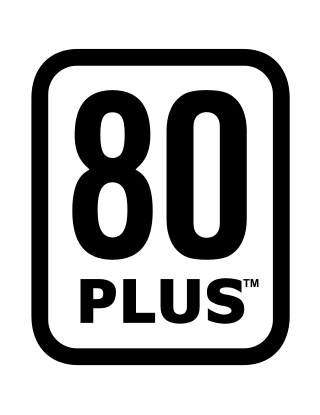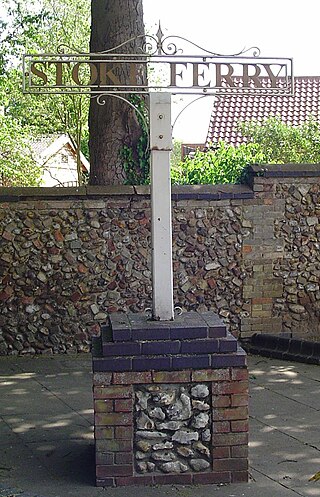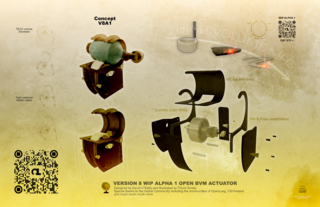
Software consists of computer programs that instruct the execution of a computer. Software also includes design documents and specifications.

Hardware stores, sometimes known as DIY stores, sell household hardware for home improvement including: fasteners, building materials, hand tools, power tools, keys, locks, hinges, chains, plumbing supplies, electrical supplies, cleaning products, housewares, tools, utensils, paint, and lawn and garden products directly to consumers for use at home or for business. Many hardware stores have specialty departments unique to its region or its owner's interests. These departments include hunting and fishing supplies, plants and nursery products, marine and boating supplies, pet food and supplies, farm and ranch supplies including animal feed, swimming pool chemicals, homebrewing supplies and canning supplies.
A tax holiday is a temporary reduction or elimination of a tax. It is synonymous with tax abatement, tax subsidy or tax reduction. Governments usually create tax holidays as incentives for business investment, although the arrangement has also been characterized as a form of corporate welfare that leads to a redistribution of resources away from smaller businesses and private citizens and towards monopolies and other forms of consolidated wealth.
Bunnings Group Limited, trading as Bunnings Warehouse or Bunnings, is an Australian household hardware and garden centre chain. The chain has been owned by Wesfarmers since 1994, and has stores in Australia and New Zealand.

Hands Inc., known as Hands, is a Japanese department store chain. Hands is now part of Cainz. Tokyu Hands opened their first store in Shibuya, Tokyo in 1976 as a DIY (Do-It-Yourself) store, hence the logo with two hands, and the emphasis on crafts and materials for projects.
The Industry Classification Benchmark (ICB) is an industry classification taxonomy launched by Dow Jones and FTSE in 2005 and now used by FTSE International and STOXX. It is used to segregate markets into sectors within the macroeconomy. The ICB uses a system of 11 industries, partitioned into 20 supersectors, which are further divided into 45 sectors, which then contain 173 subsectors.

J. Pascal's Hardware and Furniture was a Montreal, Quebec, Canada-based chain of hardware and furniture stores.

Fleet Farm is an American retail chain of 53 stores in Minnesota, Iowa, Wisconsin, North Dakota and South Dakota. Headquartered in Appleton, Wisconsin, the company has a main distribution center in Chippewa Falls, Wisconsin, with a buying/support office and warehouse in Appleton.

Blain Supply, Inc., doing business as Blain's Farm & Fleet, is a regional, family-owned chain of 45 farm supply retail stores in four states of the Upper Midwest region of the United States. Blain's Farm & Fleet was an early adopter of "buy online, pick up at the store" in which all stores provide a drive-thru pick-up experience so online orders can be retrieved without consumers having to leave the car.

Niemann Foods, Inc. (NFI) is a company headquartered in Quincy, Illinois, United States, that owns and operates over 100 supermarkets, pharmacies, convenience, pet and hardware stores mostly under the County Market, County Market Express, Harvest Market, Cenex One-Stop, Haymakers, ACE Hardware, Pet Supplies Plus, and Save-A-Lot banners in Illinois, Indiana, Iowa, and Missouri. The regional grocery store operator is growing and expanding market share in the Central Illinois, Indiana and Missouri. The employee-owned, family-run company was founded in 1917 by brothers Ferd and Steve Niemann and is currently headed by Rich Niemann, Jr.

80 Plus is a voluntary certification program launched in 2004, intended to promote efficient energy use in computer power supply units (PSUs).

Stoke Ferry is a village and civil parish in the English county of Norfolk, 6.5 miles southeast of Downham Market. The village lies on the River Wissey, previously known as the River Stoke.

Theisen's is a regional retail chain of 21 stores in Iowa and 3 stores in Wisconsin. The company headquarters are in Dubuque, Iowa. Theisen's stores sell hunting and fishing equipment, appliances, houseware, automotive goods, apparel, household hardware, lawn and garden supplies, paint, pet supplies, sporting goods, farm and ranch supplies, livestock feed, and tools.

The maker culture is a contemporary subculture representing a technology-based extension of DIY culture that intersects with hardware-oriented parts of hacker culture and revels in the creation of new devices as well as tinkering with existing ones. The maker culture in general supports open-source hardware. Typical interests enjoyed by the maker culture include engineering-oriented pursuits such as electronics, robotics, 3-D printing, and the use of computer numeric control tools, as well as more traditional activities such as metalworking, woodworking, and, mainly, its predecessor, traditional arts and crafts.

Mitre 10 is a New Zealand chain of home improvement stores established in June 1974. The company sells a range of household hardware, building supplies, heaters, air conditioners, garden products, barbecues and camping gear.

An open source ventilator is a disaster-situation ventilator made using a freely licensed (open-source) design, and ideally, freely available components and parts. Designs, components, and parts may be anywhere from completely reverse-engineered or completely new creations, components may be adaptations of various inexpensive existing products, and special hard-to-find and/or expensive parts may be 3D-printed instead of purchased. As of early 2020, the levels of documentation and testing of open source ventilators was well below scientific and medical-grade standards.
The retail format influences the consumer's store choice and addresses the consumer's expectations. At its most basic level, a retail format is a simple marketplace, that is; a location where goods and services are exchanged. In some parts of the world, the retail sector is still dominated by small family-run stores, but large retail chains are increasingly dominating the sector, because they can exert considerable buying power and pass on the savings in the form of lower prices. Many of these large retail chains also produce their own private labels which compete alongside manufacturer brands. Considerable consolidation of retail stores has changed the retail landscape, transferring power away from wholesalers and into the hands of the large retail chains.
Hammer Hardware is a New Zealand hardware store franchise. Its stores sell a range of household hardware, plants, building supplies, power tools, paint and barbecues, with ranges differing from store to store.













